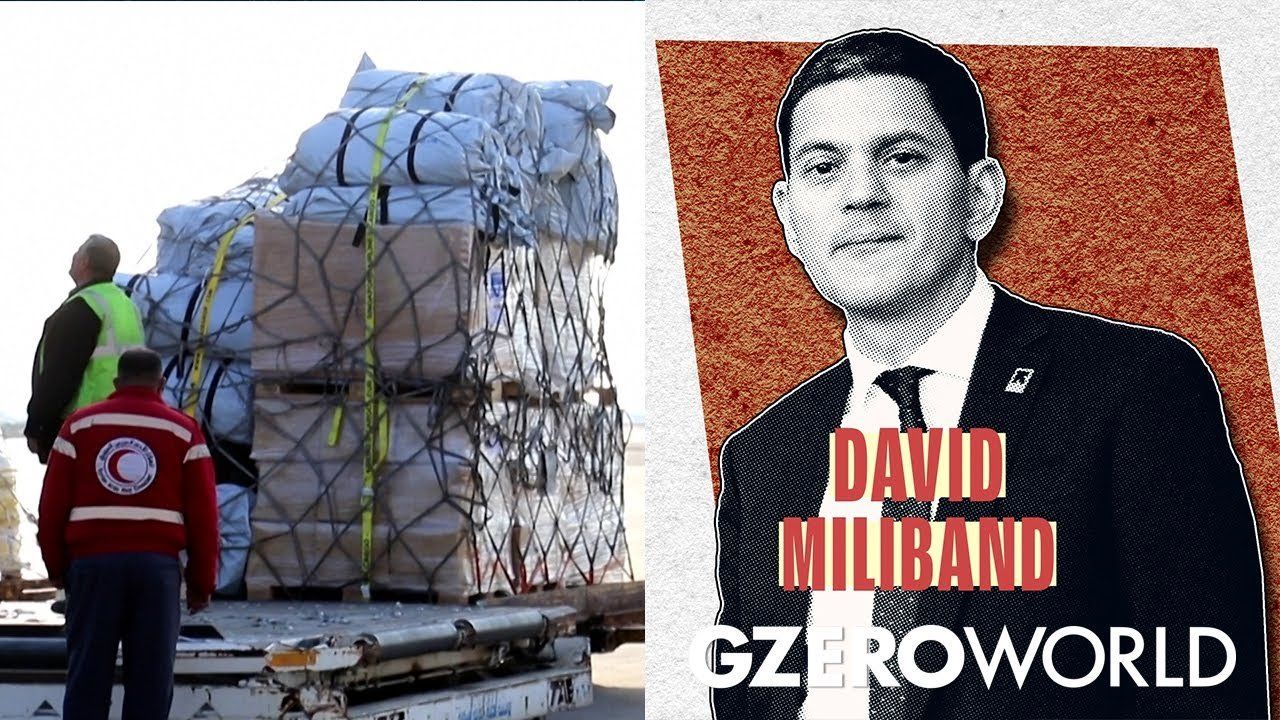Earthquakes expose political and humanitarian challenges in Turkey and Syria

In a recent episode of GZERO World, the International Rescue Committee's President and CEO, David Miliband, sheds light on the immense challenges of delivering aid in the aftermath of the deadly earthquakes that rocked Turkey and Syria. With the northwest of Syria controlled by armed opposition groups, aid delivery remains a hurdle that needs to be overcome urgently.
Miliband highlights the compounded crises in Syria, with inadequate medical care, cholera outbreaks, freezing temperatures, and ongoing border skirmishes threatening the survival of the population. He notes, "Hope is hard to find if you live there."
The political repercussions of the earthquakes are already being felt in Turkey, with citizens demanding accountability for lax building standards and corrupt permit systems. Miliband draws parallels to the 1999 earthquake, which saw accusations of corruption and the ousting of the prime minister. He predicts that the government's response to the disaster will be a hot-button issue in the upcoming election.
But it's not just about politics. The migrant crisis is an urgent humanitarian issue, with Miliband emphasizing the need for fair and humane treatment of those who have been driven from their homes. As he puts it, "We need to fulfill legal as well as moral obligations."